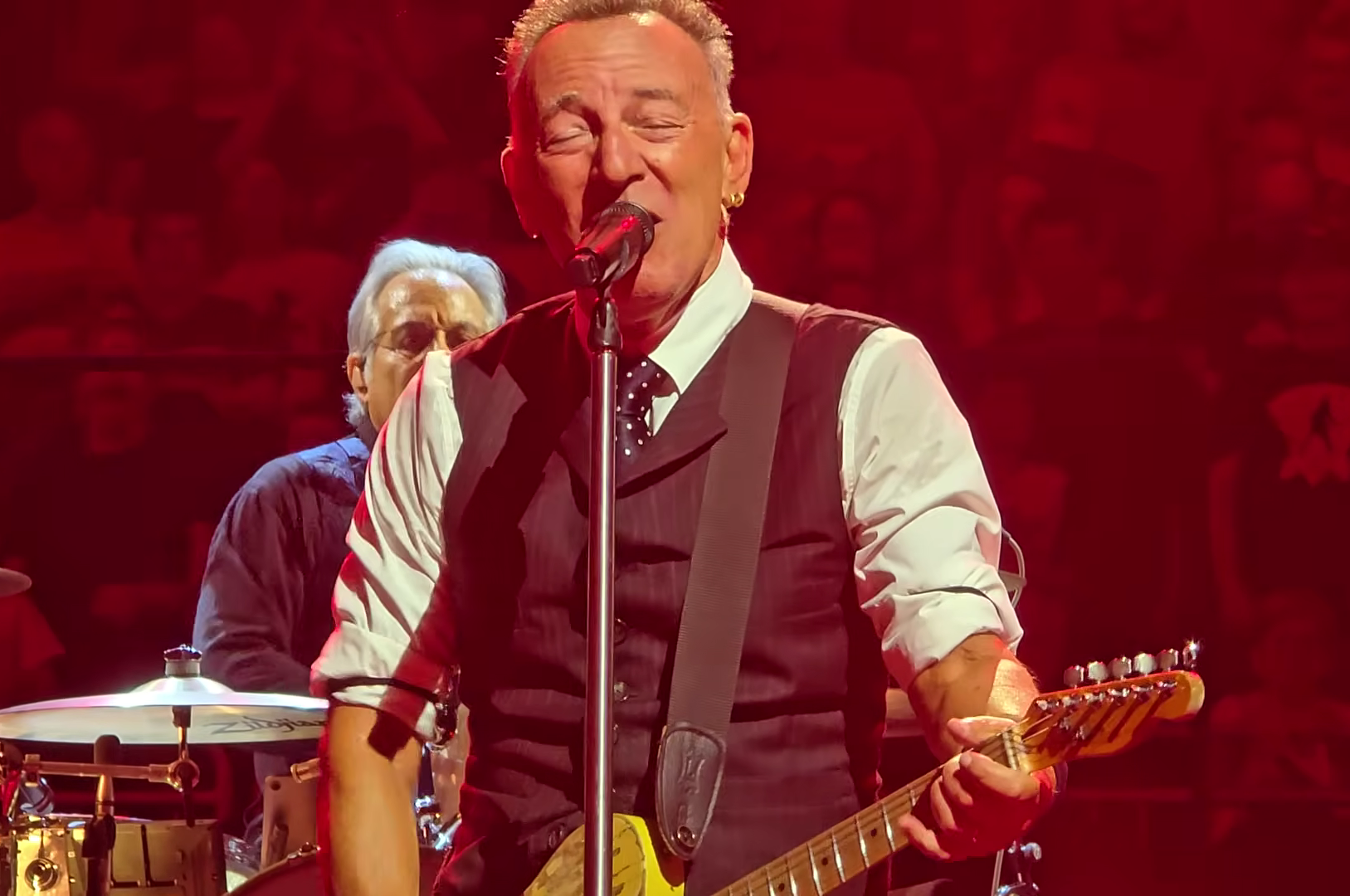On a warm summer night at Pittsburgh’s PPG Paints Arena, Bruce Springsteen and the E Street Band electrified the crowd with a soul-stirring performance of “The Promised Land,” a timeless anthem of hope and resilience. As the opening harmonica wailed under the glow of golden stage lights, Springsteen, dressed in his signature black jeans, rolled-up sleeves, and a loose neckerchief, launched into the song with raw, unfiltered passion.
The crowd of over 18,000 fans—ranging from lifelong devotees to new converts—sang along to every word, their voices rising as one when Bruce belted out the iconic lines, “I believe in a promised land!” Guitarist Nils Lofgren delivered a blistering solo, while Roy Bittan’s piano melodies shimmered beneath Max Weinberg’s thunderous drums.
The Boss, now 74 but still full of fiery energy, sprinted across the stage, slapping hands with fans in the front rows, his gravelly voice cracking with emotion during the song’s climactic finale. A single spotlight lingered on him as he closed his eyes and whispered the last verse, leaving the audience in awed silence before erupting into deafening cheers.
For those few minutes, Pittsburgh was the promised land—and Springsteen, as always, was its prophet.Bruce Springsteen was in the middle of The Promised Land when he suddenly paused—not for the lights, not for a cue, but for something far more powerful. High above the crowd, a little girl sat on her father’s shoulders, clapping in perfect time. She wore a tiny, faded Born to Run T-shirt—the same design Bruce wore back in 1973 at his very first gig.
The moment froze.
Springsteen stepped toward the edge of the stage, locked eyes with her, and quietly handed her his harmonica. No words. No spotlight. Just a silent gesture that said more than any lyric ever could. He leaned in, whispered something to her father, then turned back to the mic as if it were just another beat in the song. But it wasn’t.
In that one quiet second, louder than the amps and applause, something unforgettable passed between them. Bruce didn’t just give away a harmonica—he passed down a legacy.
And in that arena, rock and roll found a new beginning
